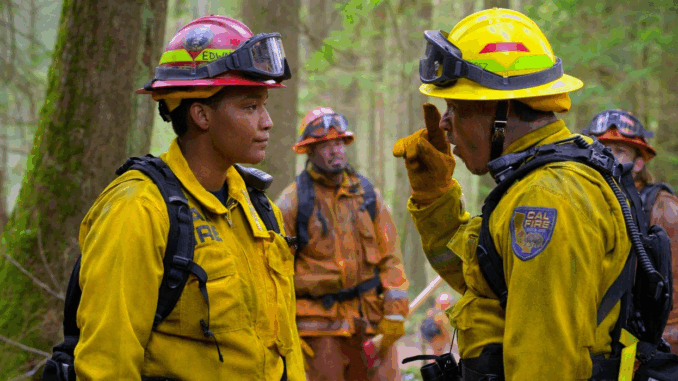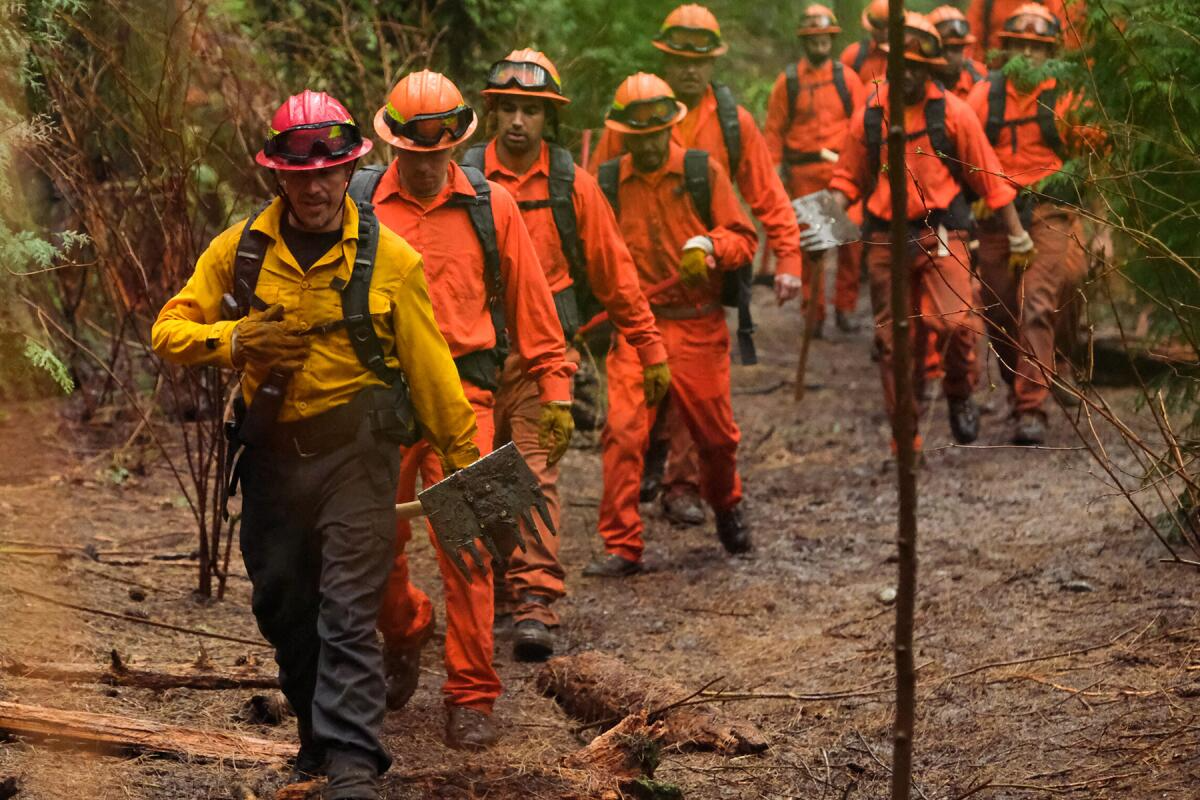
The Hidden Toll of Heroism
While Fire Country has become known for its explosive rescue scenes and action-packed wildfire sequences, its most courageous work may lie in its unflinching portrayal of mental health struggles among first responders.
From PTSD and burnout to addiction and suicidal ideation, the show tackles the unseen consequences of constant trauma—and refuses to offer easy solutions. In doing so, it sets itself apart from most primetime dramas by giving voice to the emotional weight carried by those who run toward the flames.
Bode’s Inner Inferno
Bode Donovan’s journey has never been just about redemption—it’s about survival. Not survival from fires, but from himself. As a recovering addict and ex-convict, Bode brings a deeply realistic depiction of a man teetering on the edge of relapse, rage, and regret.
In Season 3, after the death of Vince, Bode’s mental health spirals. But the show does something rare—it doesn’t make his breakdown glamorous or dramatic. Instead, it shows emotional withdrawal, sleepless nights, irritability, and recklessness.
Season 4 teases a storyline in which Bode finally agrees to trauma therapy, not through a grand decision, but after a confrontation with Eve who tells him:
“You fight fires better than you fight yourself. Maybe it’s time you changed that.”
Eve Edwards and Survivor’s Guilt

Eve’s storyline is perhaps the most nuanced depiction of survivor’s guilt seen on television in years. After losing a fellow firefighter in Season 2, she spends much of the following year performing flawlessly, refusing help, and burying her emotions.
But in Season 4, cracks begin to show. A panic attack during a training drill. A moment of hesitation during a rescue. Eve, the strong one, is finally forced to acknowledge the damage she’s been carrying.
A powerful mid-season episode reportedly features Eve attending her first group counseling session for trauma recovery—surrounded by other women who have lived through fire, loss, and silence.
Sharon Leone: The Grief That Doesn’t End
Unlike others, Sharon’s mental health battle doesn’t erupt—it lingers. After Vince’s death, Sharon doesn’t collapse. She keeps showing up to work. Keeps putting on the uniform. But viewers begin to see the cost of sustained emotional suppression.
She has difficulty sleeping. She isolates from Bode. She begins making decisions that seem cold or overly clinical.
In a quietly devastating moment, she admits to a colleague:
“I never made room for grief. Now it’s making room in me.”
Her eventual decision to take a temporary leave from Cal Fire is not portrayed as weakness—but a brave act of self-preservation.
A Rare Commitment to Emotional Realism
What Fire Country does differently is refuse to treat mental health as a one-episode arc. These storylines are long, non-linear, and deeply human. They show relapses. They show resistance. And they show that healing takes time.
The show has consulted with mental health professionals, trauma specialists, and real-life firefighters who’ve experienced everything from burnout to suicide ideation. Their insights are baked into the script.
Breaking the Silence for Real-Life Heroes
The impact goes beyond television. Since airing these storylines, the show’s official website and social media accounts have partnered with:
-
National Firefighters Foundation
-
PTSD and trauma recovery organizations
-
Inmate rehabilitation support groups
They’ve also included post-episode PSAs (Public Service Announcements) featuring cast members urging viewers to seek help, check in with each other, and de-stigmatize mental health in high-risk careers.
Conclusion: The Fires You Don’t See
Fire Country is about courage, yes. But not just the kind it takes to pull someone from a blaze. It’s about the kind of courage it takes to admit you’re not okay. To seek help. To speak honestly.
And in telling those stories, Fire Country doesn’t just entertain—it heals.
